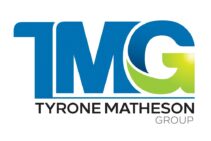Introduction
Influencer marketing has become a pivotal strategy for driving B2B sales. Today’s businesses increasingly turn to influential industry voices to connect with decision-makers and amplify their brand presence. This article explores how leveraging influencers can impact your sales pipeline and business growth. Whether you’re new to influencer marketing or looking to refine your strategy, understanding its role in B2B sales can make a significant difference in reaching and converting your target audience.
Leveraging influencer trust for sale
In the world of B2B, trust is worth its weight in gold. That’s where influencers come in – they’re like the popular kids in school but for your industry. Here’s how to make the most of their street cred:
Partnering with industry thought leaders
First things first, you’ve got to find the right influencers. Look for respected folks in your field who have a following that matches your target audience. These could be industry veterans, successful entrepreneurs, or even up-and-coming experts who are making waves.
Showcasing products in real applications
Once you’ve got your dream team of influencers, it’s time to put your product in the spotlight. But we’re not talking about boring product demos here. Instead, have your influencers show how your product or service solves real-world problems in their day-to-day work. It’s like a “day in the life” feature but with your product as the superhero.
By leveraging influencer trust, you’re not just selling a product—you’re selling a solution vetted by someone your audience already respects. It’s like getting a thumbs-up from the cool kids’ table, and in the B2B world, that can make all the difference.
Targeting decision-makers with influencers
Let’s face it: reaching the big cheeses in B2B can be more challenging than getting an audience with the Queen. But with the right influencers in your corner, you can get your foot in some pretty impressive doors. Here’s how:
Accessing C-suite via influencer endorsements
Think of influencers as your backstage pass to the C-suite. When a respected industry figure vouches for your product, it’s like getting a personal introduction to the decision-makers. Suddenly, you’re not just another sales pitch – a solution recommended by someone they trust.
Tailoring content for executive audiences
Now, you can’t just rehash your usual marketing spiel and expect it to work on the top brass. You’ve got to speak their language. Work with your influencers to create content that addresses the big-picture issues keeping executives up at night. Think of strategic impact, not just features and benefits.
By targeting decision-makers through influencers, you’re not just knocking on doors—you’re being invited in. This strategy can fast-track your way to the decision table and give you a serious edge over the competition.
Measuring ROI in B2B campaigns
Alright, let’s talk numbers. In B2B, you can’t just throw money at influencers and hope for the best. You need to know if your investment is paying off. Here’s how to keep track:
Tracking engagement and conversion rates
First, monitor how people interact with your influencer content. Are they liking, sharing, or commenting? More importantly, are they taking action—signing up for demos, downloading whitepapers, or reaching out to your sales team? These metrics give you a good idea of how well your message resonates.
Analyzing pipeline growth and revenue
But let’s be honest – at the end of the day, it’s all about the bottom line. Track how your influencer campaigns are impacting your sales pipeline. Are you seeing more qualified leads? Shorter sales cycles? Bigger deal sizes? These numbers will show if your influencer marketing is pulling its weight.
Measuring ROI in B2B influencer campaigns isn’t always straightforward, but it’s crucial. By closely monitoring these metrics, you can fine-tune your strategy and ensure you’re getting the most bang for your influencer buck.
Crafting authentic B2B influencer campaig
In the world of B2B, authenticity isn’t just nice to have – it’s essential. Your audience can smell a phony from a mile away. So, how do you keep it accurate? Let’s dive in:
Aligning influencer messaging with the brand
First, ensure your influencers are singing from the same hymn sheet as your brand. This doesn’t mean scripting every word they say – that would defeat the purpose. Instead, work together to find the sweet spot where your brand message and their unique voice overlap. It’s like a duet where both voices shine.
Creating authentic resonating content
Now, here’s where the rubber meets the road. The content you create with influencers must feel genuine, unlike a glorified ad. Encourage your influencers to share their honest experiences with your product or service. It could be a behind-the-scenes look at how they use it in their work or a candid discussion about the challenges it helps them overcome. The key is to keep it accurate and relatable.
Crafting authentic B2B influencer campaigns is an art form. It’s about finding the right balance between your message and the influencer’s voice. When you nail it, you create content that promotes your brand and provides real value to your audience. And in the B2B world, that’s the sweet spot you’re aiming for.
Amplifying reach with industry leaders
In the B2B world, your reach can make or break your success. And who better to help you expand your horizons than industry leaders? Here’s how to make it happen:
Expanding visibility through influencer networks
Think of each influencer as a gateway to a whole new audience. When you partner with industry leaders, you’re not just tapping into their following – you’re gaining access to their entire professional network. It’s like getting a VIP pass to the most significant industry party in town.
Leveraging influencer credibility for growth
But it’s not just about reaching more people – it’s about reaching the right people with the right message. Industry leaders have spent years building their credibility. When they vouch for your product or service, it’s like getting a gold star from the teacher. Their endorsement can fast-track your credibility and open doors that might have otherwise remained closed.
Amplifying your reach with industry leaders is like increasing the volume of your marketing efforts. It allows you to broadcast your message farther and louder while borrowing the credibility of respected voices in your field. This strategy can catapult your B2B sales to new heights.
Optimizing content for B2B audiences
In the B2B world, content is king – but only if it’s the right content. Your audience isn’t looking for fluff; they want substance. Here’s how to give it to them:
Developing educational and informative materials
B2B buyers are savvy. They’re not just looking for a sales pitch; they want to learn something. Work with your influencers to create content that educates your audience about industry trends, best practices, and innovative solutions. Think whitepapers, in-depth blog posts, or even online courses. The goal is to position your brand as a valuable source of knowledge, not just a vendor.
Addressing specific pain points effectively
Every business has challenges; your content should speak directly to these pain points. Use your influencers’ expertise to create targeted content that addresses your audience’s issues. It could be a case study showing how your solution solved a common industry problem or a webinar discussing strategies for overcoming typical challenges. By addressing these pain points head-on, you show that you understand your audience’s needs and have the solutions to help.
Optimizing your content for B2B audiences is about providing value beyond your product or service. It’s about becoming a trusted advisor in your industry. When you nail this, you’re not just selling—you’re building relationships that can lead to long-term business success.

IBM’s Tech Influencer Program
IBM partnered with tech influencers to promote its cloud services. By inviting influencers to events and encouraging social sharing, IBM expanded its reach and credibility in the tech industry.
SAP’s Influencer Marketing
Despite initial challenges in aligning complex enterprise software with influencer messaging, SAP’s collaboration with industry experts helped highlight specific business solutions, proving beneficial in reaching decision-makers in corporate settings.
Salesforce’s Thought Leadership Approach
Salesforce utilized thought leaders to endorse its CRM platform through speaking engagements and content creation. This approach helped Salesforce connect with businesses seeking to enhance customer relationships.
Adobe’s Creative Professionals Partnership
Adobe collaborates with designers and artists to create tutorials and case studies showcasing their software’s capabilities. This partnership educates Adobe’s audience while leveraging the expertise and credibility of industry professionals.
FAQs
Q: How do I find the right influencers for my B2B brand?
A: Look for thought leaders in your industry with a strong following among your target audience. Consider their expertise, engagement rates, and alignment with your brand values.
Q: How can I measure the ROI of my B2B influencer marketing campaigns?
A: Track metrics such as engagement rates, lead generation, sales pipeline growth, and revenue attributed to influencer campaigns. Use unique tracking codes or landing pages for each campaign.
Q: Is influencer marketing only for large B2B companies?
A: Not at all! Companies of all sizes can benefit from influencer marketing. Smaller companies might focus on micro-influencers or niche industry experts.
Q: How often should I run influencer campaigns?
A: It depends on your goals and resources. Some companies run ongoing campaigns, while others focus on specific product launches or events. Consistency is critical for building long-term relationships.
Q: What if an influencer campaign performs differently than expected?
A: Analyze the data to understand why. Was the message off? Did you target the wrong audience? Use these insights to refine your future campaigns.
Conclusion
Influencer Marketing for B2B Sales: Strategies and ROI isn’t just a buzzword – it’s a powerful tool that can transform your sales strategy. By leveraging influencer trust, targeting decision-makers, measuring ROI, crafting authentic campaigns, amplifying reach with industry leaders, and optimizing content for B2B audiences, you can create a marketing strategy that truly resonates with your target market.
Remember, in the B2B world, it’s not just about reaching a broad audience – it’s about reaching the right audience with the right message. Influencer marketing allows you to tap into established networks of trust and credibility, opening doors that might otherwise remain closed.
As you implement these strategies, remember that influencer marketing in B2B is a long game. It’s about building relationships, establishing credibility, and positioning your brand as a trusted industry leader. The results may take time, but the long-term impact on your sales and brand reputation can be significant.
Are you ready to take your B2B sales to the next level with influencer marketing? Start by identifying potential influencers in your industry, crafting a strategy that aligns with your business goals, and creating content that genuinely adds value to your audience. With patience, persistence, and the right approach, you can harness the power of influencer marketing to drive your B2B sales to new heights.
After all, in B2B sales, it’s not just what you know – it’s who you know and, more importantly, who knows (and trusts) you. So start building those influential relationships, and watch your B2B sales soar!
Are you ready to turn the assets in and around your business into money? Let’s Talk!
